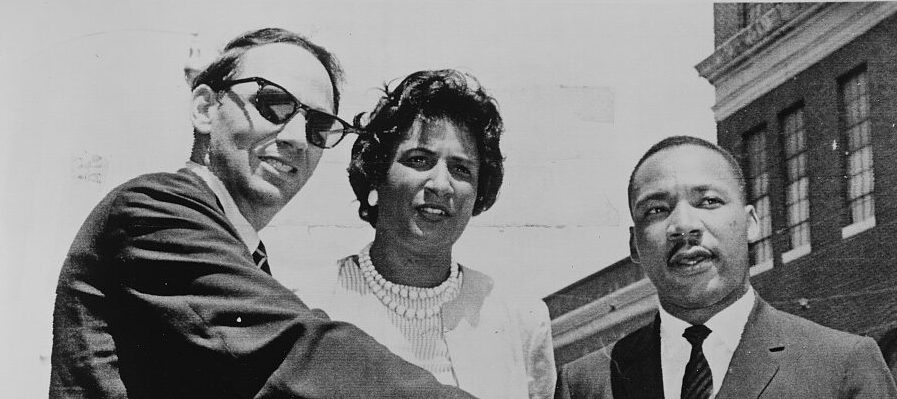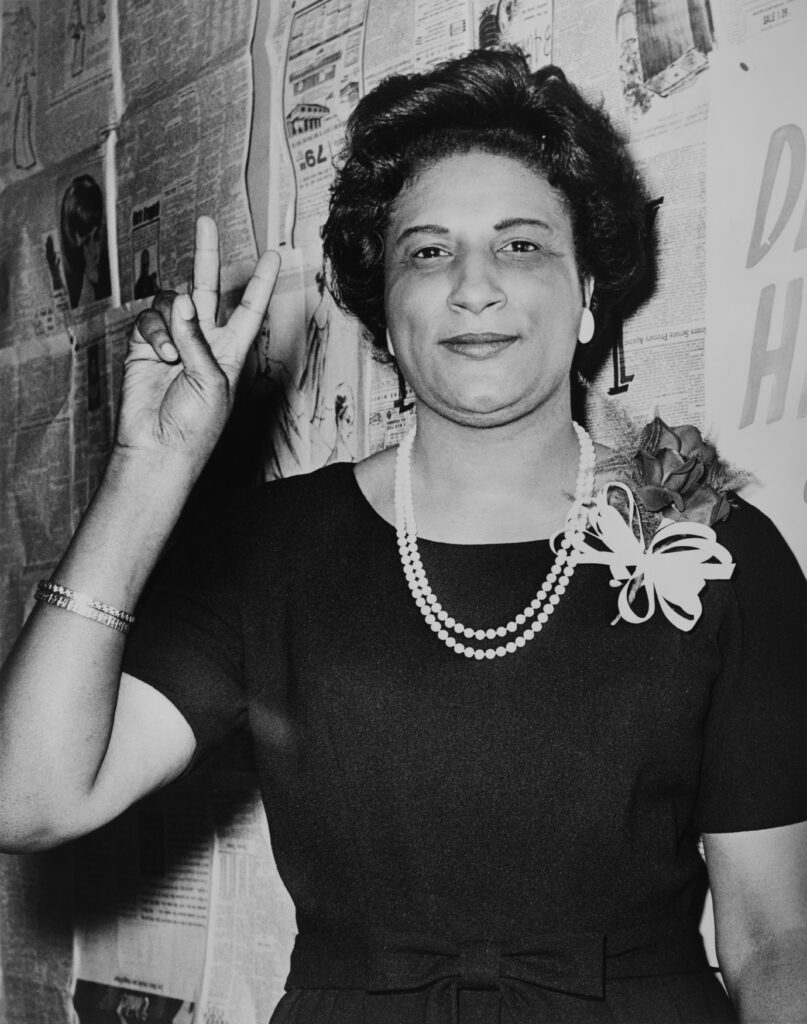
By Emerson Drewes

When Ketanji Brown Jackson was nominated to become the first Black woman justice of the Supreme Court of the United States earlier this year, she acknowledged being inspired by a particular federal judge from history.
“I stand on the shoulders of so many who have come before me,” she said during her Senate confirmation hearing, “including Judge Constance Baker Motley.”
Fifty-six year earlier, it was Motley who was undergoing hearings in the Senate hoping to be confirmed to a position in the federal judiciary. Nominated by President Johnson to be a judge of the United States District Court for the Southern District of New York, she became the first-ever female African-American federal judge. She took the bench in 1966 and served 20 years before transitioning to senior status. She died in 2005 at age 84.
Judge Motley’s trailblazing tenure on the federal bench followed a career as an attorney that was, if anything, even more significant.
As the first female attorney for the NAACP’s National Defense Fund, she was a contemporary of the great civil rights activists of the era, including Rev. Martin Luther King Jr. and future Supreme Court Justice Thurgood Marshall.
At the NAACP, she worked on several cases that undid segregation laws enacted during the Jim Crow era, and she played a huge role in the landmark school desegregation case of Brown v. Board of Education. Although Marshall argued the case in front of the Supreme Court, it was Motley’s complaint that included the memorable – and ultimately successful – argument against the principle of separate but equal:
“Separate educational facilities,” she wrote, “are inherently unequal.”
She also became the first Black woman to argue before the Supreme Court of the United States. She did it 10 times and won nine.
Born in New Haven, Connecticut, in 1921 to immigrants from the Caribbean island of Nevis, Constance Baker was the ninth of 12 children. Her father, McCullough Alva Baker, was a chef at Yale University. Her mother, Rachel Huggins, was an activist in her community who started the New Haven chapter of the NAACP.
She grew up in an era when racism and segregation were the norm in many places. New Haven was largely integrated, but there were still not many Black people in town. She started to learn about American Black history at her local church and read the works of Black civil rights activists W.E.B. Du Bois and James Weldon Johnson.
“That’s what stirred my interest in becoming a lawyer and working in the area of civil rights,” she told an interviewer in 2003.
At 19 she was giving speech at a local African-American social center when she caught the attention of a white philanthropist who sponsored the center. He was so enthralled by her performance that he offered to finance her entire education. She chose to attend Fisk University, a historically Black school in Tennessee.
Boarding the train from New Haven, she was put into a compartment labeled “colored.”
“Although I had known this would happen, I was both frightened and humiliated,” she wrote in her memoir, “Equal Justice Under Law.” “All I knew for sure was that I could do nothing about this new reality.”
She didn’t remain at Fisk for long, transferring to New York University after a year. After NYU, she studied law at Columbia University in New York City and clerked for Marshall at the fledging National Association for the Advancement of Colored People. The clerkship eventually led to her working full time for the NAACP.
Not only was she closely connected to Marshall – some called her his protégé – but she represented King after his 1963 arrest in Birmingham, Alabama, for attempting to desegregate lunch counters.
Today the Marshall-Motley Scholars Program, established by the NAACP Legal Defense Fund, provides scholarships to Black students to attend law school. The program also encourages them to specialize in civil rights law.
Before becoming a federal judge, she also served as a New York state senator and Manhattan borough president in New York City.
Among her notable judicial decisions, in Blank v. Sullivan & Cromwell (1976), she ruled that female lawyers had the right to see documents that confirmed that a law firm was engaging in gender discrimination against women.
In Ludtke v. Kuhn (1978) she decided that a female reporter for Sports Illustrated had the right to enter the New York Yankees’ locker room to conduct interviews.
Ketanji Brown Jackson and Judge Motley took somewhat similar journeys to their highest positions on the bench. Both women underwent contentious Senate confirmation hearings. Segregationists opposed Motley because of her prior legal work on civil rights. A Southern senator accused her of being a member of the Communist Party. She was confirmed on a voice vote.
Justice Jackson and Judge Motley also share the same birthday, September 14.
At her confirmation hearing, Justice Jackson talked of one other important similarity.
“[L]ike Judge Motley I have dedicated my career to ensuring that those words engraved on the front of the Supreme Court (Equal Justice Under Law) … are a reality.”
The National Visionary Leadership Project interviewed Judge Constance Baker Motley for its oral history project on African-American elders who shaped the 20th century.
Here are some clips from that interview:

CHICAGO – The American Bar Association Judicial Division announced recently that TheNational Ju...

The National Judicial College is mourning the loss of former faculty member Judge Duane Harves, who passed ...

As the world manages an evolving natural environment, The National Judicial College announced today that it...

Do’s Manage your cases systematically Devise a system that works for you and your organizational...

After 22 years of teaching judges, Tennessee Senior Judge Don Ash will retire as a regular faculty member a...